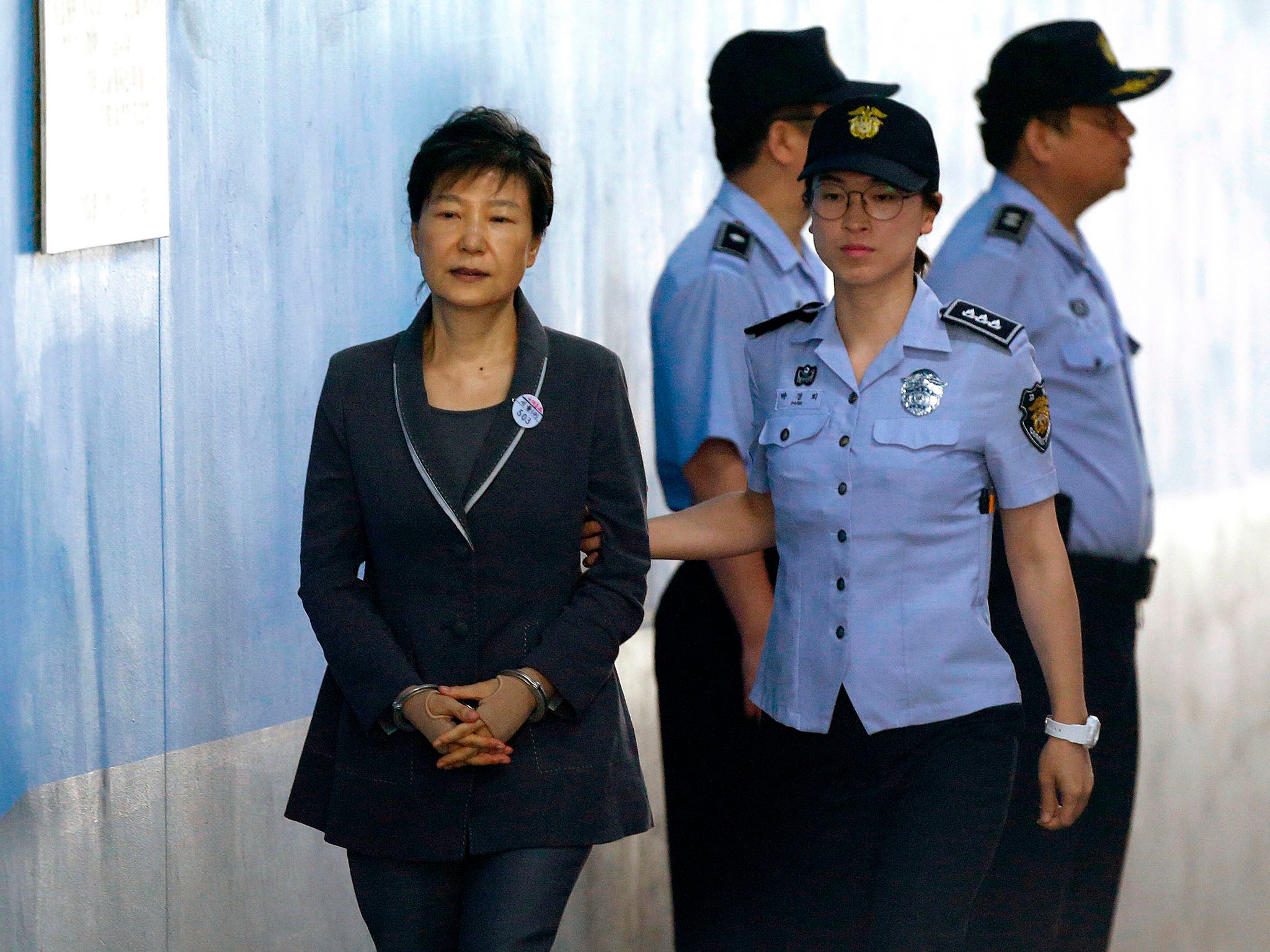Park Geun-hye: South Korea's former president sentenced to eight more years in prison
The former president is currently serving a 24 year prison term over a massive corruption scandal that led to her removal from office last year

Your support helps us to tell the story
From reproductive rights to climate change to Big Tech, The Independent is on the ground when the story is developing. Whether it's investigating the financials of Elon Musk's pro-Trump PAC or producing our latest documentary, 'The A Word', which shines a light on the American women fighting for reproductive rights, we know how important it is to parse out the facts from the messaging.
At such a critical moment in US history, we need reporters on the ground. Your donation allows us to keep sending journalists to speak to both sides of the story.
The Independent is trusted by Americans across the entire political spectrum. And unlike many other quality news outlets, we choose not to lock Americans out of our reporting and analysis with paywalls. We believe quality journalism should be available to everyone, paid for by those who can afford it.
Your support makes all the difference.A South Korean court on Friday sentenced former South Korean president Park Geun-hye to an additional eight years for abusing state funds and violating election laws.
She now faces the prospect of more than three decades behind bars. She’s already serving a 24 year prison term over a massive corruption scandal that led to her removal from office last year.
Seoul Central District Court on Friday found her guilty of causing substantial losses to state coffers by unlawfully receiving about 3bn won (£2m) from chiefs of the National Intelligence Service during her presidency and sentenced her to six years in prison.
However, she was found not guilty of bribery charges related to the money transfers. The court said it was unclear whether the spy chiefs sought or received favours in return.
The court separately sentenced Park to two years in prison for breaking election laws by meddling in her party candidate’s nomination while attempting to win more spots for her loyalists ahead of the parliamentary elections in 2016.
She didn’t appear in court.
Park’s conservative party failed to gain a majority in the National Assembly after the parliamentary vote in April 2016. Analysts then said voters were frustrated over what they saw as Park’s heavy-handed and uncompromising leadership style and inability to tolerate dissent within her party, which triggered rifts between her loyalists and reformists.
The party’s defeat loomed large months later in December when an opposition controlled parliament suspended Park’s powers by passing a bill on her impeachment. Millions of protesters had poured onto the streets calling for Park’s ouster amid allegations that she colluded with a longtime confidant to take tens of millions of dollars from companies in bribes and extortion and allowed the friend to secretly manipulate state affairs. The court convicted Park on most of these charges when it sentenced her to 24 years in prison in April.
The ruling marked a stunning fall from grace for the country’s first female leader who won the 2012 presidential election by more than a million votes. Park enjoyed overwhelming support from conservatives who remember her father, staunch anti-communist dictator Park Chung-hee, as a hero whose aggressive industrial policies lifted the nation from the devastation of the 1950-53 Korean War and rescued millions from poverty. Critics see the elder Park as a brutal dictator who tortured and executed dissidents.
While Park’s prison term currently adds up to 32 years, this could change, and potentially get even longer, depending on rulings of appeals courts. Prosecutors appealed Park’s 24 year term on charges including bribery and abuse of state power and are now demanding 30 years in prison. The Seoul High Court will rule on the case on 24 August.
Following her impeachment, Park was formally removed from office following a ruling by the country’s Constitutional Court in March last year and was arrested weeks later.
Associated Press
Join our commenting forum
Join thought-provoking conversations, follow other Independent readers and see their replies
Comments